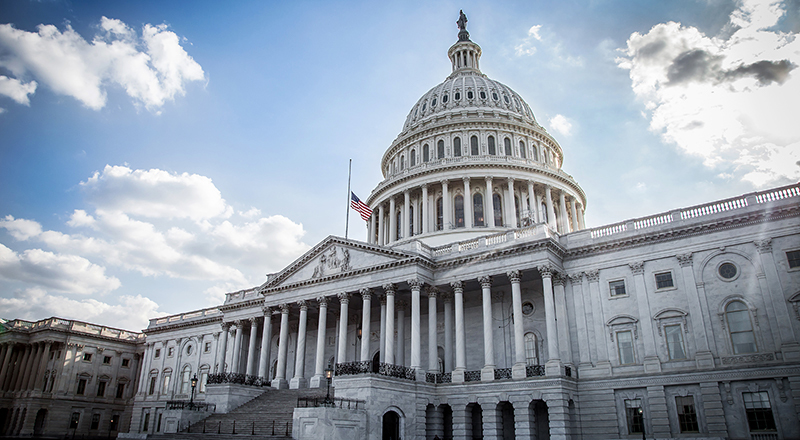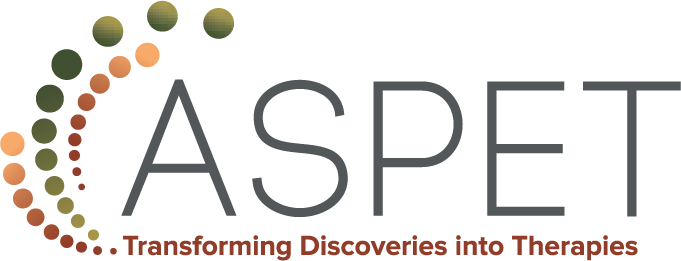
Become An Advocate for Science as a Washington Fellow
 ASPET’s Washington Fellows Program has been educating over 130 early-career pharmacologists since its inception in 2013. The Society’s science policy advocacy program offers early-career pharmacologists the opportunity to immerse themselves in a unique policy learning experience. Regardless of one’s career background, pharmacology fellows learn the basics of science advocacy, participate in Hill Day on Capitol Hill in Washington, D.C. and write a policy brief focusing on a topic of interest.
ASPET’s Washington Fellows Program has been educating over 130 early-career pharmacologists since its inception in 2013. The Society’s science policy advocacy program offers early-career pharmacologists the opportunity to immerse themselves in a unique policy learning experience. Regardless of one’s career background, pharmacology fellows learn the basics of science advocacy, participate in Hill Day on Capitol Hill in Washington, D.C. and write a policy brief focusing on a topic of interest.
Nina Beltran is a 2024 Washington Fellows alumni who wanted to use her scientific communications experience to advocate for continued funding for scientific research and to highlight the importance of animal research. She is a fifth-year Behavioral Neuroscience PhD candidate in the Department of Psychology at The University of Texas at El Paso (UTEP).
In a discussion with The Pharmacologist, Beltran shares her interest in pharmacology, her experience learning about science policy as a Washington Fellow, and the mindset shift in career options in science policy that the experience created for her.
TPharm: Hi Nina, can you talk about your current research and career interests?
Nina Beltran: Hello! My research focuses on understanding how dietary factors impact sensitivity to the behavioral and physiological effects of opioids. My career interest is to become a pharmacologist/toxicologist in either government or pharmaceutical industry sectors, where I can apply my technical and scientific background to investigate pharmacotherapies in a collaborative environment.
TPharm: What motivated you to apply to the Washington Fellows Program?
Nina Beltran: I really wanted to gain a deeper understanding of science policy and how it impacts biomedical research and drug development. As a PhD candidate with experience in toxicology and pharmacology, I recognize the importance of engaging with policymakers to advocate for evidence-based policies that support scientific innovation and public health. The opportunity to receive hands-on experience in science policy, interact with experts in the field, and contribute to advocacy efforts aligned with my long-term goal of bridging the gap between research and policy.
TPharm: Did you have any science policy experience before the fellowship? What interested you in science policy?
Nina Beltran: My interest in science policy was heightened through my experience as a local organizing leader for the UTEP Biomedical Research Awareness Day (BRAD) events. BRAD is a global initiative to help raise awareness of the importance of the use of animals in biomedical research. For the past five years, I have helped organize the UTEP BRAD events, where I have shared information with students on research breakthroughs and policies on the use of animals in biomedical research. I have thoroughly enjoyed this experience, which made me eager to understand better how public policy decisions are made, and how I can better advocate for the importance of biomedical research with my congressional representatives through the Washington Fellows program.
TPharm: What skills did you develop or refine during the fellowship that you find most valuable now?
Nina Beltran: The fellowship significantly enhanced my ability to communicate complex scientific concepts to non-scientific audiences, particularly policymakers and stakeholders. I refined my science communication and policy advocacy skills, which have proven invaluable in academic and industry settings. Additionally, I gained confidence in networking and professional outreach, which has helped me establish meaningful connections in the science policy space.
TPharm: How did the fellowship help you grow professionally or personally?
Nina Beltran: Professionally, the fellowship provided me with a broader perspective on the role of scientists in policy development and how regulatory frameworks shape research funding, drug approval processes, and public health initiatives. Personally, it strengthened my leadership skills, adaptability, and ability to advocate for scientific causes. It also reinforced my commitment to using my expertise beyond the lab to contribute to meaningful policy discussions.
TPharm: How has the fellowship influenced your career trajectory?
Nina Beltran: The Washington Fellows program solidified my interest in pursuing a career at the intersection of research and policy. Specifically, my experience in the program reinforced my goal of working in clinical development and regulatory affairs, where I could contribute to translating scientific discoveries into real-world applications. The skills I gained have been directly relevant to my pursuit of roles where regulatory considerations are crucial in trial design and implementation.
TPharm: Did you have opportunities to network with others in the science policy space?
Nina Beltran: Absolutely! The fellowship provided incredible opportunities to connect with Washington Fellows alumni and scientists engaged in policy work. Through meetings with scientific organizations through the Washington Fellows program, I built professional relationships in the science policy space. Additionally, I connected with other fellows, shared perspectives on science policy issues, and engaged in meaningful discussions about biomedical research.
TPharm: What was the Hill Day experience like for you?
Nina Beltran: My Hill Day experience was incredibly insightful and exciting! It provided a unique opportunity to engage directly with congressional staff and discuss the importance of federal funding for biomedical research and evidence-based policymaking. I appreciated the chance to advocate for science funding, highlighting how advancements in research impact public health, drug development, and regulatory decisions. It was both a privilege and a responsibility to represent the scientific community in these discussions, further fueling my passion for science policy advocacy.
TPharm: What about Hill Day stood out for you?
Nina Beltran: I had a unique opportunity to meet with my congressional representative from El Paso, Texas, Veronica Escobar, which was a meaningful experience. Many meetings on Hill Day are with congressional staffers, so speaking directly with my representative about the importance of federal funding for biomedical research was incredibly rewarding. Advocating for scientific research in my home district at the national level made the experience even more impactful. Additionally, Representative Escobar’s staff went above and beyond by arranging a tour of Capitol Hill, an unforgettable way to conclude the Washington Fellows experience. Walking through the historic halls where crucial policy decisions are made reinforced the importance of scientists being involved in advocacy. The entire experience was inspiring and empowering, reaffirming my commitment to ensuring that science has a strong voice in policymaking.
TPharm: What was most surprising or unexpected about your fellowship experience?
Nina Beltran: One of the most surprising aspects of the fellowship was how accessible and receptive congressional staff were to engage in conversations about science. I had anticipated that discussions with congressional offices might be more formal or distant, but I was pleasantly surprised by the interest staff showed in hearing about research and its implications for public health and policy. Additionally, my perspective on science policy evolved significantly throughout the program. I entered the fellowship with a broad interest in policy, but by the end, I had a clearer understanding of the regulatory landscape and how I could contribute to science-driven policy decisions in my career.
TPharm: What advice do you give to someone considering applying?
Nina Beltran: If you’re considering applying, I strongly encourage you to do so! The Washington Fellows program is a transformative experience that provides unique insights into the intersection of science and policy. My advice is to come with an open mind, be proactive in engaging with policy discussions, and take full advantage of networking opportunities. Additionally, think about how you want to apply the skills you gain—whether in academia, industry, government, or advocacy—and use the skills you gain from the fellowship to build a strong foundation for that path.
TPharm: Thanks so much Nina, it was great talking with you.
Nina Beltran: You’re welcome!
Applications for the 2025–26 program will open on May 1, 2025. To learn more about the ASPET Washington Fellows experience, watch this recent town hall and view photos from our recent Hill Day in Washington, D.C.
